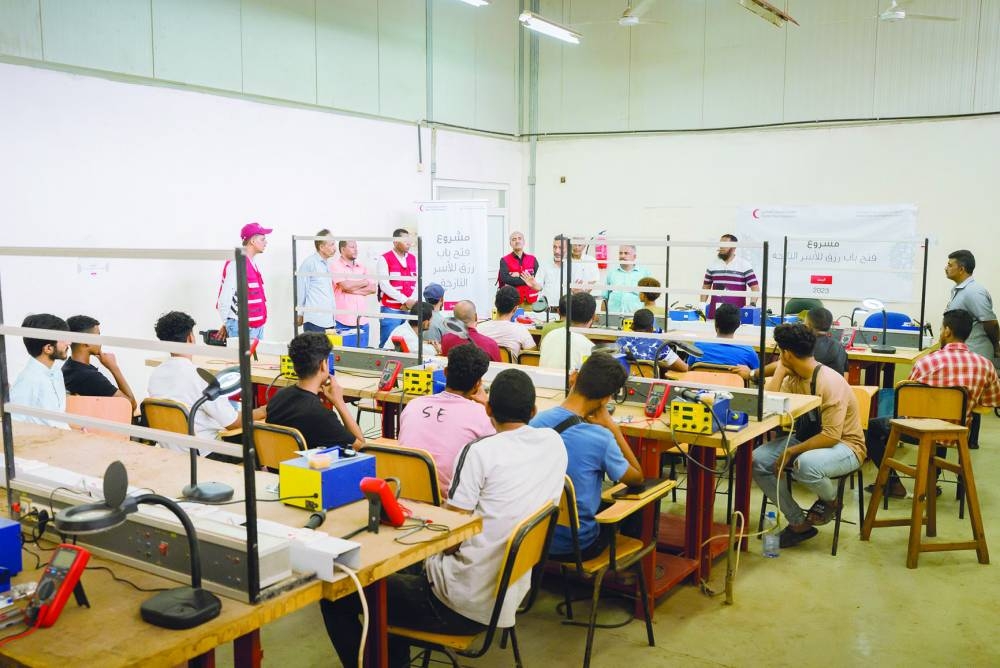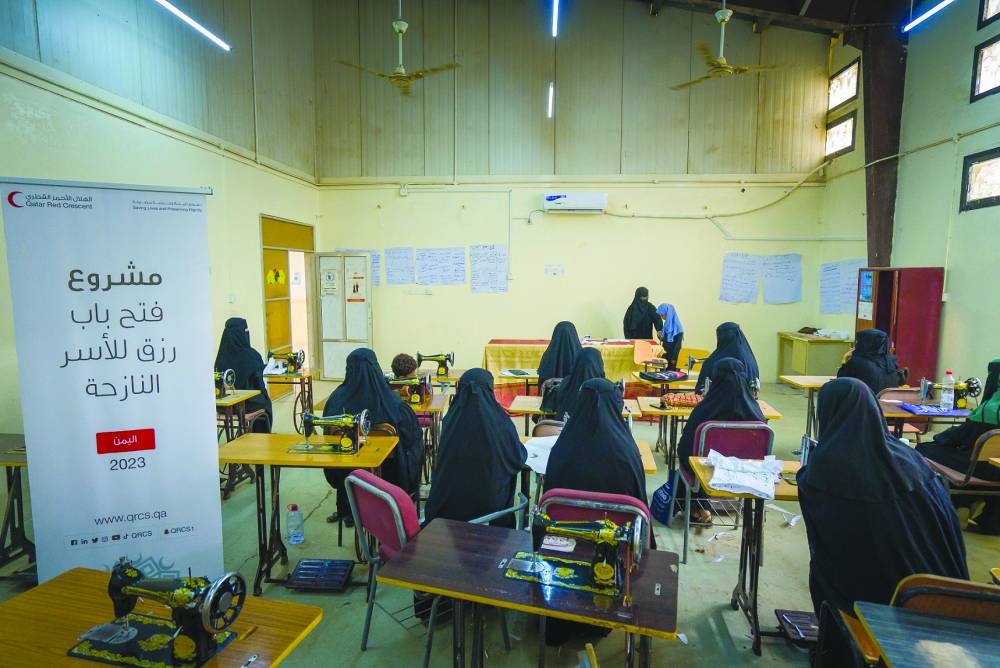Qatar Red Crescent Society (QRCS) has launched a livelihood support project for displaced families in Yemen to improve the standard of living of 610 poor families in Aden, Abyan, and Lahij.
The initiative involves vocational training for breadwinners in income-generating professions, at a total cost of $278,600, a QRCS statement said Wednesday.
During the inauguration ceremony, Mohamed Salem al-Shukaila, director of Technical Education and Vocational Training Office in Aden, said: “Today, we are launching the project to support livelihoods for poor families, which is funded by QRCS and coordinated with the Technical Education and Vocational Training Office.
“We are grateful to QRCS for this contribution, and we look forward to supporting the departments and trainees with advanced training and production machines. After the training, we hope that every trainee will have her own sewing machine, to start their own small enterprises in the labor market”.
Gihad Mohamed Maatouq, director of the Industrial Vocational Institute in Mansoura, Aden, welcomed the project. In Lahij, Ayman al-Shuhairi, director-general of the Technical Education and Vocational Training Office, said: “We are kicking off the training courses under the QRCS-funded livelihood support project, for the benefit of 105 people in Al-Hawtah District. It involves mobile phone maintenance, motorcycle mechanics, incense making, and many other professions”.
During a training course under the project, Gamila Saad al-Majaali, a hairdressing trainer, said: “Today, we started a hairdressing training programme with 25 attendees for four hours per day or 120 hours over a month. The project allows the trainees to learn how to practice make-up and hairdressing. Hopefully, this initiative would help the poor and displaced families to make their livelihoods. I would like to thank QRCS for its vital interventions, especially in this field”.
The project involves training 100 persons in mobile phone maintenance, training 100 persons in handicrafts (50% sewing and 50% hairdressing), training 100 persons in the installation and maintenance of solar panels, distributing livestock like sheep and cows to 250 poor families in rural areas, and training 60 persons in basic motorcycle mechanics and maintenance.
Each category of trainees would be provided with the tools and supplies to start their own enterprises, and all of them would be qualified and certified in administrative and financial project management.


